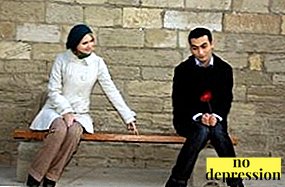
It's amazing how often all our failures and failures can be explained by banal laziness.
But what is interesting is that when people experience failure, they are ready to more likely call themselves “stupid” than “lazy”. And the main reason for this - laziness is too easy to “fix”, and “stupidity” is, it seems, innate. There is nothing you can do!
When a person abandons his goal, he complains about the lack of talents / knowledge / innate skills, thereby trying to get rid of feelings of guilt. And indeed, who is to blame for the fact that a person does not have talent for mathematics / language / economics or any other discipline? Nature is to blame.
Only a few are able to admit that the real cause of failure was their own laziness. And it is really much more difficult, because in this case, you practically recognize that you had everything you need to achieve your goal, and only you are to blame for your laziness.
If you justify your laziness by “inborn vices” (like the lack of talent) too often, there is a risk to write yourself down as “losers” - people whose life is always hopeless and bad. Such people are boring, weak and, as a rule, financially untenable, and the only emotion that arises when dealing with them is pity.
You probably think that “losers” feel bad and are trying to get out of their unenviable position by any means? And no! After all, as in the case of an attempt to justify their laziness with their own “stupidity,” being a loser is beneficial. And to convince the loser that he is able to radically change everything that poisons his life is simply impossible without the help of a therapist. And all because it is unprofitable for him to recognize his strength and potential.
The status of a “loser” allows you to “legally”, and most importantly, without special criticism from your own conscience, avoid complex challenges and shift the responsibility for resolving difficulties on others' shoulders. After all, the easiest way to cause self-pity is to pretend to be weak or even sick. And we don't beat the weak, (even there is such a saying) they help him, he is less burdened, paying more attention and care.
The position of the “weak” person usually chooses in deep childhood. Parents and relatives are “led” to childhood weakness with naivety, which can be envied. By choosing an effective strategy, children can become truly brilliant actors to convince parents of their own weakness and helplessness. And their “game”, in turn, can turn out to be so convincing that from a certain moment they themselves begin to believe in their own fate as a “loser”.
In the logic of this position there is nothing tricky. In childhood, due to weakness, the child easily and successfully manipulates his environment, and in an adult the logic of avoiding difficulties is used for the purpose of self-deception! The fact is that as they grow older, a person clearly understands that not all problems are caused by external factors. In addition to external causes, we also have to struggle daily with what is directly inside a person. Strong will rise on the warpath, and will certainly win all of his internal enemies, and the one who chose the loser’s position will blame nature, genetics, and even call himself a fool.
On this topic:
How to start a new life with a clean slate
5 things you will regret before dying



